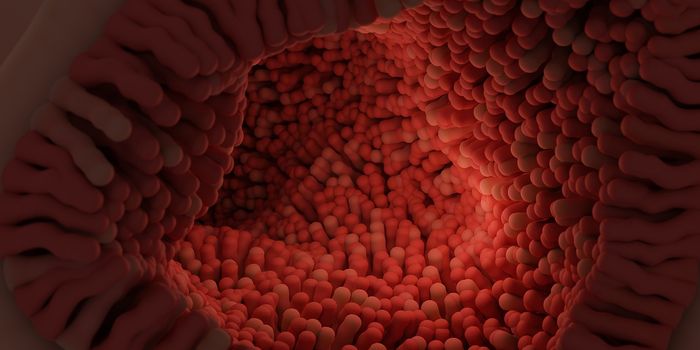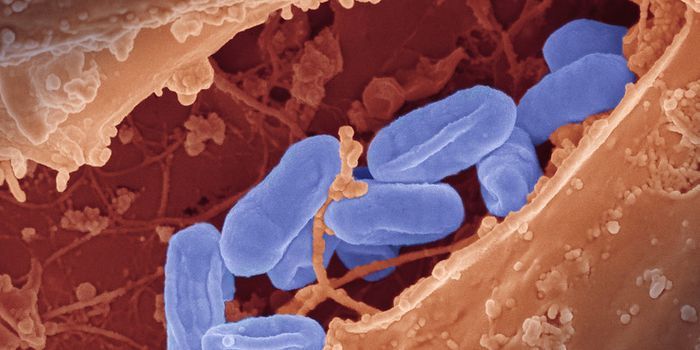Together, Two Gut Microbes Have a Nasty Effect
The microbes in the human gut play important roles in our physiology, and they can also contribute to disease. But they do not exist on their own; they live together in a large community, and the relationships they have with one another may be just as important as their individual identities.
Multiple sclerosis (MS) is an autoimmune disease in which the insulating sheath surrounding neurons is destroyed, a process called demyelination. It can cause numbness, tremors, and weakness, and can disrupt the ability to walk. Reporting in Nature, researchers from the RIKEN Center for Integrative Medical Sciences (IMS) used a mouse model to show that a specific combination of gut microbes can worsen the symptoms of MS. Together, the microbes encourage the activity of immune cells that attack the brain and spinal cord.
It's known that gut microbes can change the symptoms of multiple sclerosis. In this study, the researchers began to learn more about how that happens.
A mouse model of MS experiences demyelination of the spinal cord as T cells that generate an inflammatory molecule called IL-17A attack the myelin. When these mice were given ampicillin, the demyelination was reduced, and the activation of this kind of T cell was halted.
"We found that treatment with ampicillin, and only ampicillin, selectively reduced activity of T cells that attack an important protein called myelin oligodendrocyte glycoprotein [MOG], which helps myelin stick to neurons," explained study author Hiroshi Ohno of RIKEN IMS.
The researchers harvested immune cells from the small intestines of the model, exposed them to MOG, and measured cytokine levels; they saw that it was only reduced by ampicillin if the T cells were from the small intestine. This suggested that microbes in the small intestine activate MOG-specific T cells that are then able to attack myelin.
They searched for the microbe that was responsible since ampicillin was reducing the symptoms. They found a candidate, OTU002, and tested it. They determined that when their mouse model totally lacked OTU002, they had symptoms that were worse than mice without gut microbes.
"But, there was a problem," said first author Eiji Miyauchi. "Symptoms in the OTU002-only mice were not as bad as those in the regular model mice. This means that the original effect must involve more than one microorganism."
They looked for a bacterium that could react to MOG-specific T cells, and found that Lactobacillus reuteri makes a protein with a region that is similar to one in MOG. Mice that carried both L. reuteri and OTU002 had more severe symptoms than those with only OTU002 mice and were just as bad as the original model mice. When the microbes combine, they unleash a terrible effect.
"Other studies have focused on fecal microbes, or a single microbe, in patients with multiple sclerosis or in model mice," said Miyauchi. "Our data emphasize the necessity of considering the synergistic effects of intestinal microbes on autoimmune diseases and give hope to people looking for effective treatments for multiple sclerosis. But, because gut microbes and T cell binding locations on myelin differ between mouse and human, further studies using human microbes and autoreactive T cells are now needed."
Sources: AAAS/Eurekalert! Via RIKEN, Nature









